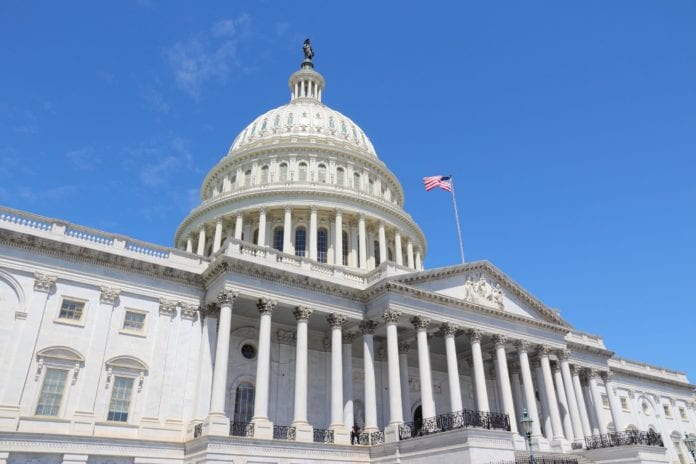In a rare show of bipartisanship, the U.S. House has unanimously passed a bill that seeks to financially support a domestic 5G equipment market and Open Radio Access Network development with an influx of $750 million in funding over the next 10 years.
The bill directs the National Telecommunications and Information Administration to begin issuing competitive grants within 18 months that promote “the use of technology, including software, hardware, and microprocessing technology, that will enhance competitiveness in the supply chains of Open RAN 5G Networks,” and accelerated development and deployment of Open RAN technologies. It also asks for the establishment of “objective criteria” that could be used to determine if equipment meets the definition of Open RAN equipment.
Whether the Utilizing Strategic Allied Telecommunications Act of 2020, or USA Telecommunications Act, legislation will be taken up by the Senate and potentially pass during the lame-duck period remains to be seen. A version of the bill was introduced in the Senate in January by a bipartisan group of senators including Acting Senate Intelligence Committee Chairman Marco Rubio (R-FL) and Vice Chairman Mark Warner (D-VA).
The House bill also stipulates that an oversight committee must be formed to help direct the grants as well as the overarching efforts of the federal government to “promote a more secure, diverse, sustainable, and competitive supply chain for Open RAN 5G Networks.” That advisory committee is to include representatives from the Federal Communications Commission, the Defense Advanced Research Projects Agency (DARPA), the Intelligence Advanced Research Projects Activity of the Office of the Director of National Intelligence (IARPA), NIST, the State Department, the Department of Homeland Security, the National Science Foundation and potentially, additional representatives from the public and private sector.
The House bill was introduced by Rep. Frank Pallone (D-NJ-6) and originally co-sponsored by Rep. Doris Matsui (D-CA-6) and REp. Brett Guthrie (R-KY-2) and Rep. Greg WAlden (R-OR-2). It now has a total of 11 co-sponsors from both parties.
The open RAN 5G bill was one of three telecom-related bills passed by the House yesterday. The other two dealt with emergency alerts via mobile devices and the use of federal spectrum. The emergency alerts bill classified alerts from the Federal Emergency Management Agency as ones that may not be blocked by mobile device end-users, and directed the FCC to work with the states to develop plans to modernize the Emergency Alert System and to study the feasibility of expanding emergency alerts to internet and streaming services.
Meanwhile, the Spectrum IT Modernization Act of 2020 requires NTIA to submit a report to Congress on plans to “modernize agency information technology systems relating to managing the use of federal spectrum.”
All three of the bills passed via a voice vote with bipartisan support.
In a joint statement, Pallone and Rep. Mike Doyle (D-PA-18) Doyle said that the three bills “will create a better, safer communications network for us all. At its core, our telecommunications infrastructure exists to serve the public interest and connect our nation, and we are proud of the bipartisan work that went into advancing that goal with these three bills.”

